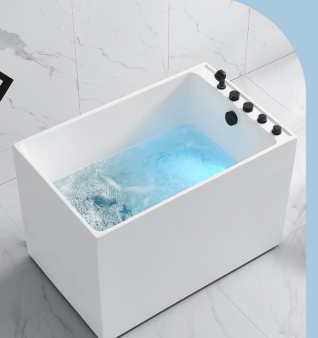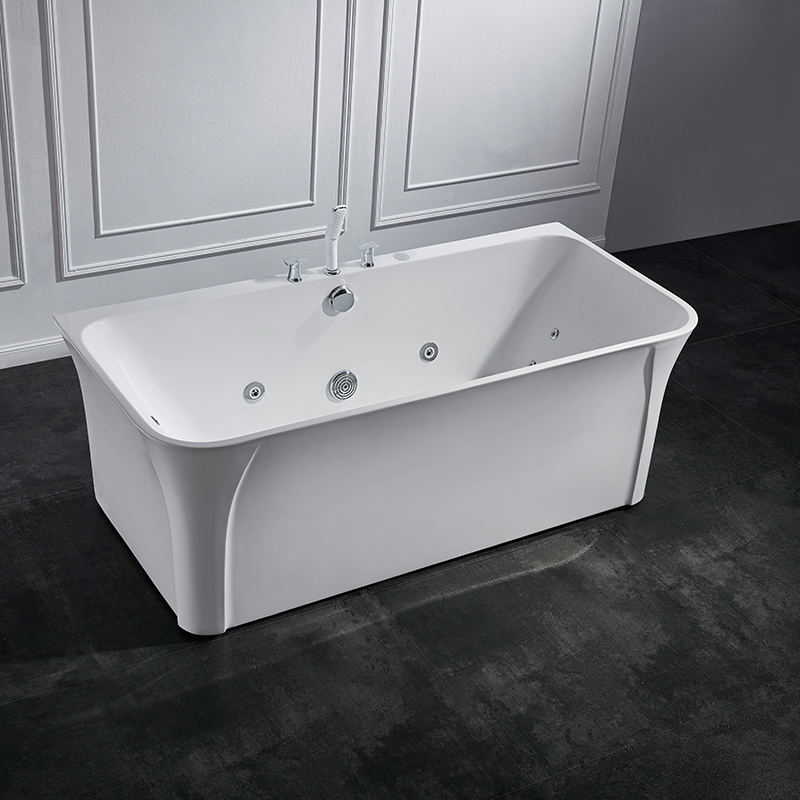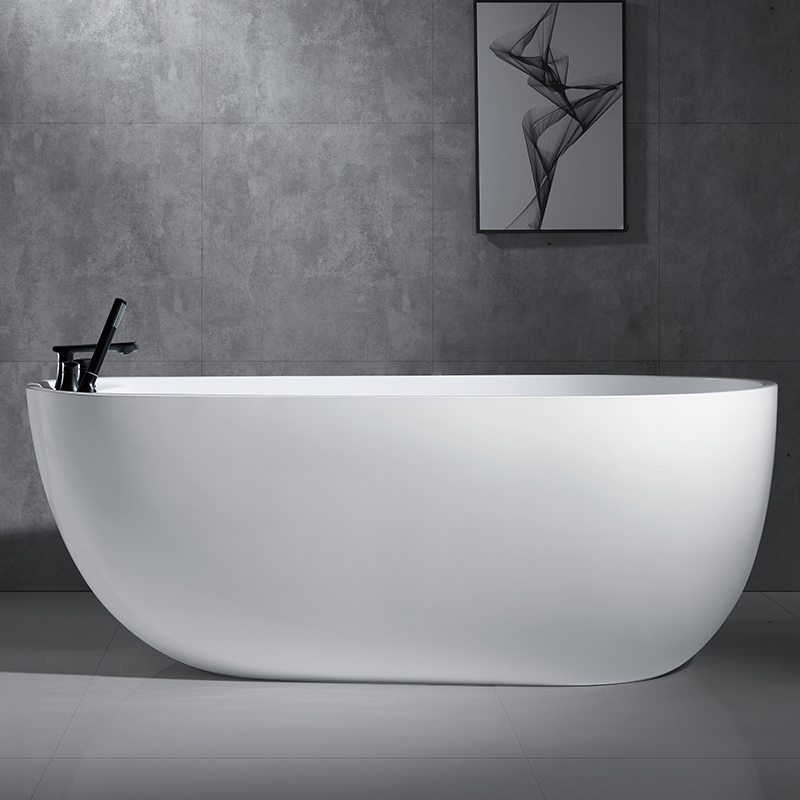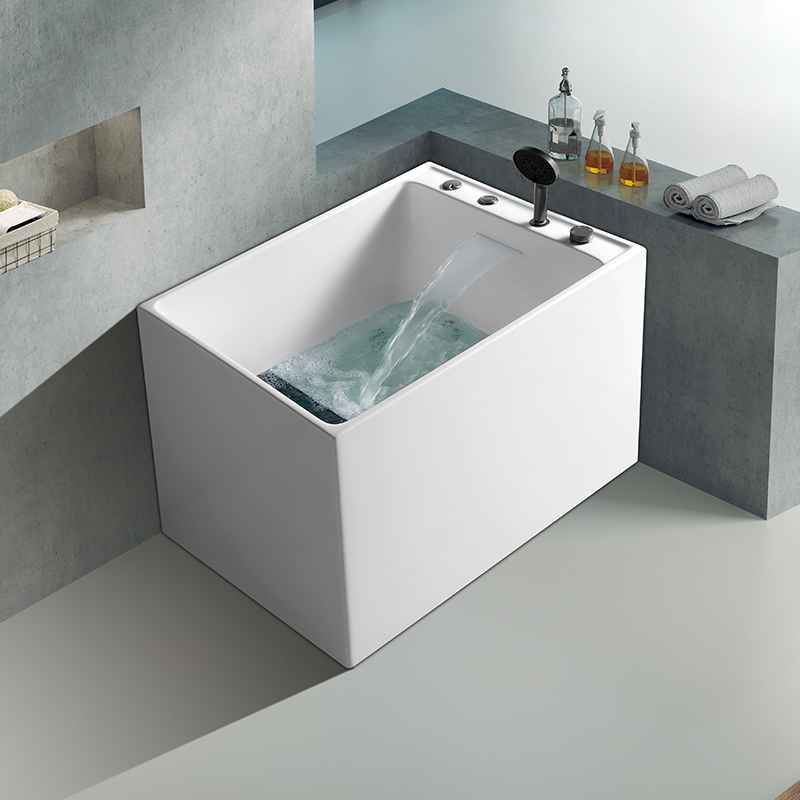How long is it appropriate to soak in a deep bathtub? A scientific bathing guide helps you stay healthy and relaxed。

In the fast-paced modern life, taking a warm and comfortable hot bath, especially being in a deep bathtub, has become an ideal way for many people to relieve stress and relax their bodies and minds. Deep soaking bathtubs, with their high water level and strong wrapping ability, can better cover the body and offer an immersive relaxation experience. However, a longer bath time is not necessarily better, especially when using a deep bathtub. Factors such as water temperature, duration, and personal constitution all need to be comprehensively considered. So, how long is the most appropriate time to soak in a deep bathtub? This article will provide you with a detailed analysis from multiple dimensions to help you take a bath scientifically and enjoy a healthy life.
1. Recommended soaking time in a deep bathtub: 15 to 30 minutes is appropriate
Based on various suggestions, it is most appropriate to keep the soaking time in a deep bathtub between 15 and 30 minutes. This period of time can effectively promote blood circulation, relax muscles and relieve fatigue, without causing physical discomfort or skin problems due to prolonged soaking.
It should be noted that this is not a one-size-fits-all standard. The specific duration should be flexibly adjusted based on the following factors.
二、 Key Factors Affecting Bath Duration
The water temperature determines the soaking time,Water temperature is the primary factor determining the duration of a bath. The higher the water temperature, the faster the body's metabolism and the greater the burden on the heart. Therefore, the time should be shortened accordingly.
● 37℃-39℃ (warm water close to body temperature) : Suitable for long soaking, 20-30 minutes, ideal for daily relaxation.
● Around 40℃ : It can be soaked for 10 to 15 minutes and is suitable for relieving mild muscle soreness.
When the temperature exceeds 40℃, especially above 42℃ : It is recommended to soak for no more than 3 to 5 minutes. Prolonged soaking at high temperatures can easily cause dizziness, palpitations, and even fainting.
2. Personal physical condition requires special attention
● Elderly people, those with weak constitutions, and patients with cardiovascular diseases (such as hypertension and heart disease) : They should shorten their bath time to within 10 to 15 minutes to avoid overburdening their hearts.
● Pregnant women, people with diabetes, and those with sensitive skin: They should take a bath under the guidance of a doctor, control the water temperature and duration, and prevent accidents.
● Children: It is recommended that the bath time should not exceed 10 minutes, and the water temperature should be controlled at 36℃-38℃ to prevent dehydration or scalding。
3. The time for taking a bath should be adjusted according to different purposes
● Relaxation and stress relief: Good results can be achieved within 15 to 20 minutes.
● Relieve muscle soreness or arthritis: It can be appropriately extended to 25-30 minutes. The effect is better when combined with bath salts or essential oils.
● Medicinal baths or aromatherapy: Follow the product instructions or medical advice. Do not extend the soaking time by yourself.
三、 Risks that may arise from taking a bath for too long
Although taking a bath is enjoyable, excessive soaking may cause the following problems:
1. Skin problems: Prolonged soaking can cause excessive hydration of the stratum corneum of the skin, resulting in "wrinkles", dryness, itching, and even damage to the skin barrier.
2. Abnormal blood circulation: A large amount of blood flows to the surface of the body, which may lead to insufficient blood supply to the brain, causing dizziness and fatigue.
3. Increased burden on the heart: Under high temperatures, the heart rate increases, exerting pressure on the cardiovascular system. In severe cases, it may trigger arrhythmia.
4. Dehydration and Fatigue: Sweating during a bath leads to hidden water loss. If water is not replenished in time, it can easily cause mild dehydration and make one feel tired after the bath。
四、 Major Points to Note for Scientific Bathing。
1. Control water temperature: It is recommended that the water temperature be maintained between 38℃ and 40℃ to avoid overheating.
2. Replenish water in time: Drink an appropriate amount of warm water before and after taking a bath to prevent dehydration.
3. Keep well-ventilated: The bathroom should be well-ventilated to avoid oxygen deficiency or heatstroke caused by high temperature and humidity.
4. Post-soaking care
Dry your body immediately after taking a bath and keep warm, especially in winter.
Apply body lotion to lock in skin moisture and prevent dryness.
After using bath salts or essential oils, it is recommended to rinse quickly with clean water to avoid residue that may irritate the skin.
五、 Bath Suggestions for Different Seasons
● Winter: It can be appropriately extended to 25-30 minutes, but pay attention to the temperature in the bathroom and keep warm to avoid catching a cold.
● Summer: It is recommended to shorten the time to 15-20 minutes to avoid heatstroke or excessive sweating.
六、 Conclusion: Brew for health, not burden
Deep soaking in a bathtub not only brings physical relaxation but also reflects a certain quality of life. However, true enjoyment is based on science and health. The appropriate bath time is not "the longer the better", but "just right". Adjust flexibly according to water temperature, physical condition and needs, listen to your body's signals. Once dizziness, palpitations or skin discomfort occur, stop immediately.
Remember: 15 to 30 minutes, water at 38 to 40 degrees Celsius, replenish water moderately, and pay attention to safety - this is the most ideal rule for using a deep soaking bathtub. Let every bath be a wonderful ritual to rejuvenate your body and mind, rather than a burden on your health.
May you wash away your fatigue in the warm water, embrace health and welcome every energetic day.




